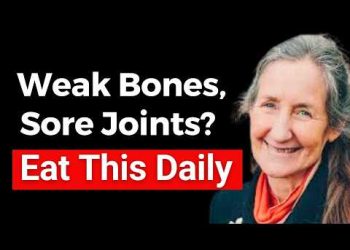Introduction: My Journey with a High-Fat Diet
I’ve been adhering to a high-fat, animal-based diet for the last three years, which has granted me better health, mental clarity, and the energy I’ve always desired. However, I’ve discovered that maintaining an optimal balance of fat is crucial, as too much can lead to digestion issues and undesirable weight gain. This article navigates how fat influences weight and health.
Understanding How Fat Makes You Gain Weight
It’s a straightforward concept: consuming more calories than your body can use results in stored energy, leading to weight gain. For instance, if I were to eat an exorbitant amount of fat daily and remain inactive, I would inevitably gain weight. Overeating, regardless of being fat, carbs, or protein, can contribute to weight gain as each macronutrient contains calories.
How Fat Can Help You Lose Weight
Fat can also assist in weight management. Compared to carbohydrates, fat provides a longer-lasting feeling of fullness, reducing the tendency to overeat. After transitioning from a high-carb diet to a high-fat one, I found that satiation from fats led to reduced calorie intake and weight loss, showing that fat doesn’t have a magical slimming effect but helps prevent overeating.
The Significance of Finding Balance
Maintaining the right balance of fat is vital. Overeating fat is less common but can occur, leading to gain of the wrong kind of weight. It’s about how everybody is different, and what’s essential is finding that personal sweet spot of fat intake that supports your individual health goals efficiently and sustainably.
Establishing the Correct Fat Intake
To ensure adequate fat intake, I follow a three-step method. First, determine how much is necessary to avoid underfeeding, which can provoke a spectrum of health issues. I use dietary guidelines as a starting point while adjusting based on personal needs.
Determining Protein Necessities
Protein intake is non-negotiable in my dietary routine. I aim for a minimum grams of protein equivalent to my goal weight. This ensures that protein needs are met, which is essential for muscle and overall body function.
Balancing Fat and Protein
For my calorie needs, the leftover calories after protein can be adjusted between fats and carbs. I prefer not to consume more protein in grams than fat as it ensures the body receives enough energy from fats, which is critical for sustaining energy levels and avoiding fatigue.
Managing Daily Fat and Protein Ratios
Adjustable fat intake allows for flexibility. For example, if a meal is high in lean proteins, I will add fats, such as butter, to meet my nutritional goals. This balance prevents periods of excessive protein without sufficient fat, which could disrupt energy levels.
Adapting the Diet to Personal Needs
Each person is different, and those engaging in a similar dietary journey need to be adaptable. The trick is understanding individual body responses—some thrive on very high fat intakes, while others, like me, prefer a moderate approach resulting in optimal health benefits.
Conclusion: The Importance of Personalized Nutrition
Ultimately, finding the balance in fat consumption is both personal and instrumental for achieving desired health outcomes. While there’s no one-size-fits-all, understanding your body’s needs, trialing adjustments, and eating consciously forms the foundation of a successful dietary strategy that supports sustainable health benefits.











